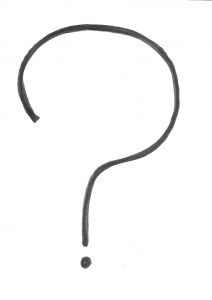
Inside yoga 249
We have become accustomed to getting answers, and more importantly we are conditioned to expect answers when seeking them, and this is especially the case when it comes to the spiritual practices. What is the meaning of life and so forth?
One of my Buddhist teachers, Stephen Batchelor, has written a fascinating book called ‘After Buddhism’, subtitled, “rethinking the dharma for a secular age”. The dharma means the teachings of the Buddha. When he was younger he spent about 10 years as an ordained monk in both Zen and Tibetan traditions (at different times) but Stephen is an independent, non-aligned, Buddhist, but importantly he is regarded an as expert in the traditions and their texts having studied and translated many of them since the 1970s.
In his book he writes: “Human beings seemed primed as language users to prefer an answer – even a negative one – to resting in the disquieting perplexity of not-knowing”, and he adds, “Learning to not know who we are and why we are will answer the question better than a response claiming to know.”
The Buddhist traditions are interested in our alertness and being awake to every moment and by asking questions where the answers can be elusive can be more beneficial than we would first realise. The idea of uncertainty cultivates a more awake state, as we find ourselves in between the knowing and not-knowing, where we are more alert, in a seeking state of mind, looking for answers.
The Zen traditions from Far East are interested in the questioning state of doubt, because when we are uncertain and questioning, it is regarded as an alert and awake state of mind, ideal for realising the real nature of things and so forth.
It is a paradoxical way of looking at our existence but has anyone ever really thought that life was straight forward and simple?
Stephen refers to not-knowing as being “far removed from the dull, foggy confusion of ignorance. It is a vivid alertness that avoids being drawn into any position at all. As such it hovers on the cusp between ‘it is’ and it is not’, resisting the seductive lure of certainty. This is true of any genuine doubt.”
Twenty years ago when I was on a three-month Vipassana (Buddhist) retreat Stephen was my guiding teacher, who I saw twice a week for a 15-minute meeting to discuss my practice. Towards the end of my retreat I said to him that more I practiced the more I began to suspect that I really don’t know.
He looked at me, and quietly said one word: “Good”. The penny dropped with that one word answer!
Answers are not always what we expect.
Have a comment or question? Contact me via the blog reply panel below or email gary@yogabristol.co.uk
Or, share this blog with others… on social media or via the ancient practice of face-to-face conversation

5 years ago ·
Thank you Gary, enjoyed my first lesson last night.
Your post reminds me of the book Good Question, Good Answer, read it a few years ago, will dig it out again as really enjoyed it!